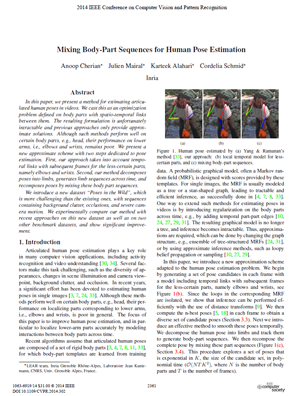Seminar on Current Works in Computer Vision
Prof. Thomas BroxComputer Vision is a very active research field with many practical applications, for instance in quality control, robotics, or driver assistance systems. The goal of Computer Vision is to imitate the flexibility and robustness of the human visual system. Research has made significant progress in recent years particularly due to deep learning. Almost all research in Computer Vision has shifted to deep learning based methods.
In this seminar we will take a detailed look at some of the most interesting recent works. For each paper there will be one person, who performs a more detailed investigation of a research paper and its background and who will give a presentation. The presentation is followed by a discussion with all participants about the merits and limitations of the respective paper. You will learn to read and understand contemporary research papers, to give a good oral presentation, to ask questions, and to openly discuss a research problem.
In a poll, the students of the introductory session decided for the online format. We will have the seminar online.
|

|
Material:
Seminar organizationGiving a good presentation
Proper scientific behavior
Slides of the introductory lecture
Powerpoint template for your presentation (optional)
Papers:
| Date | Paper | Questions | Presenting student | Slides | Advisor |
| 14.12.22 | Collapse in (non-)contrastive learning | questions | Ahmet Selim Canakci | slides | Yassine Marrakchi |
| 21.12.22 | Neural Feature Fusion Fields | questions | Tjark Behrens | slides| Jan Bechtold |
|
| 11.01.23 | Unsupervised part discovery | questions | Aasaipriya Chandran | slides | Silvio Galesso |
| 18.01.23 | Discovering states and transformations in image collections | questions | Cedric Chabenat | slides | Maria Bravo |
| 08.02.23 | Disentangling visual and written concepts in CLIP | questions | Varun Nelluri | Philipp Schroeppel | |
| 08.02.23 | Compositional physical reasoning of objects and events | questions | Cora Hartmann | slides | Simon Schrodi |


